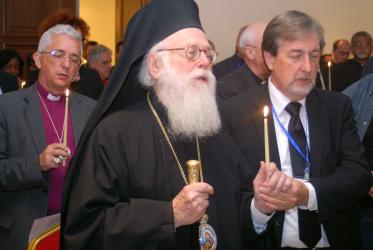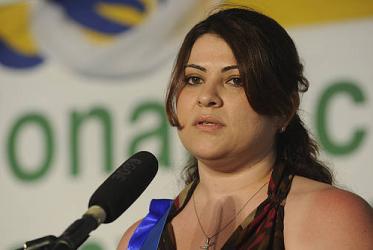Displaying 21 - 40 of 46
Symposium focuses on religion, violence, extremism
04 February 2016
WCC/UN conference calls for coordinated action on refugee crisis
20 January 2016
Rebuilding a smashed church in Albania
23 December 2015
WCC urges responsibility for and support to the refugees in Europe
04 September 2015
Assembly renews churches’ commitment towards justice and peace
08 November 2013
Dialogue on politicization of religion and rights of minorities
17 September 2013
WCC adopts statements on contemporary public issues
12 September 2012
Women in inter-religious dialogue in Indonesia
31 July 2012
Interfaith partners advocate for health at UN summit
17 September 2010














